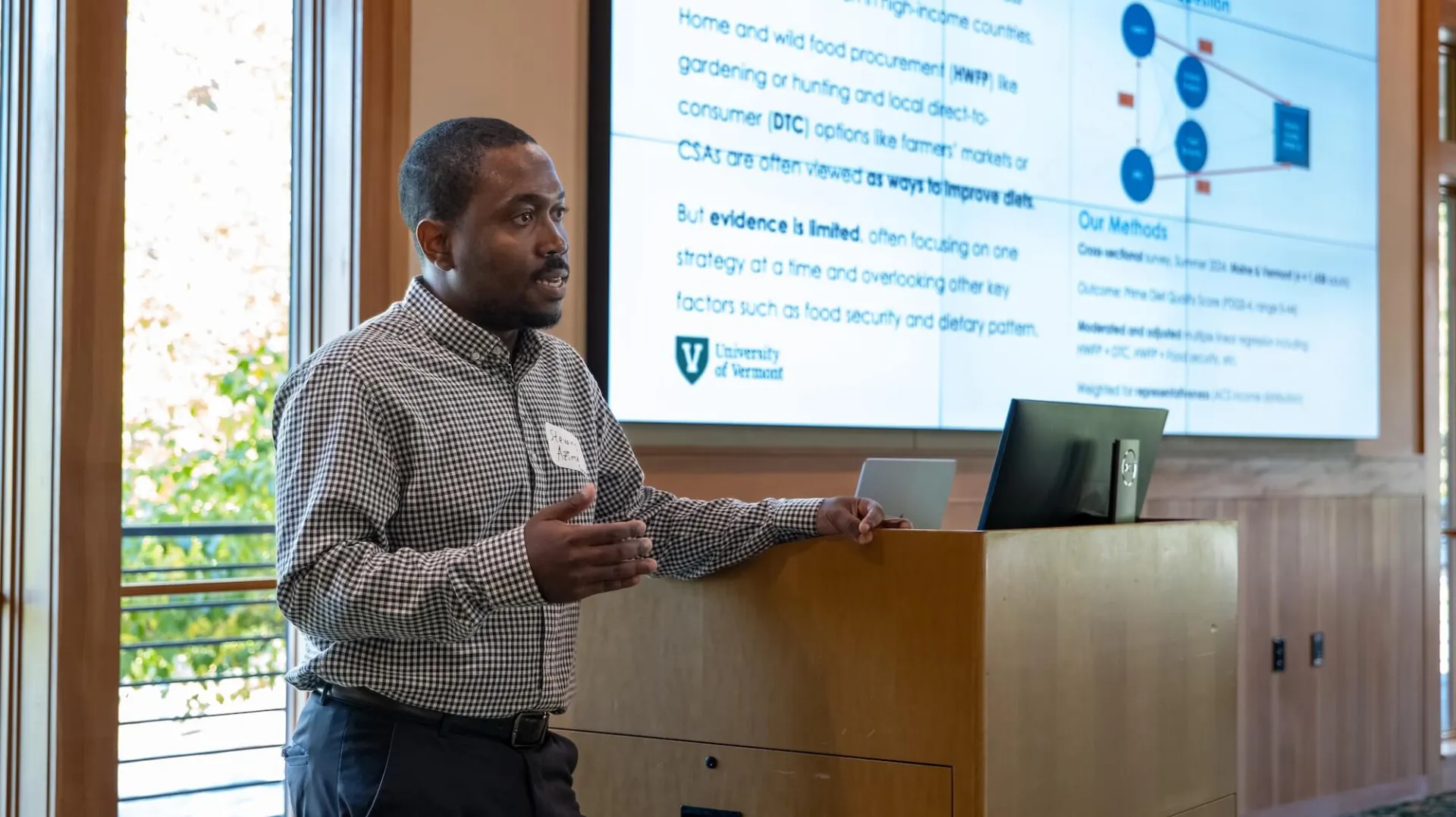Last week, the Food Systems Research Institute hosted its first-ever Snap Talk event at the Alumni House Silver Pavilion. Researchers from across the University of Vermont gathered to share their work in a fast-paced, engaging format: five-minute talks designed to spark curiosity and conversation. Presenters covered a wide range of topics, including sustainable grazing, home and wild food procurement, and even the production of propane from agricultural waste.
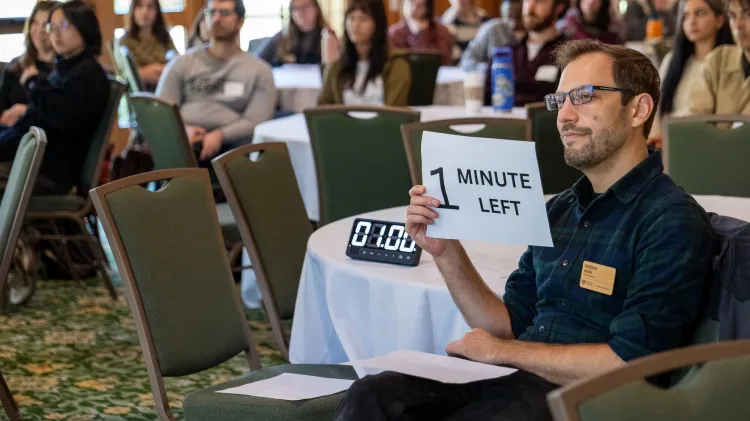
"This is an exciting time for food systems research at UVM," said FSRI Director Polly Ericksen. "It was a delight to see connections being made between students and faculty and across disciplines. This event exemplified the diversity of food systems research happening on campus."
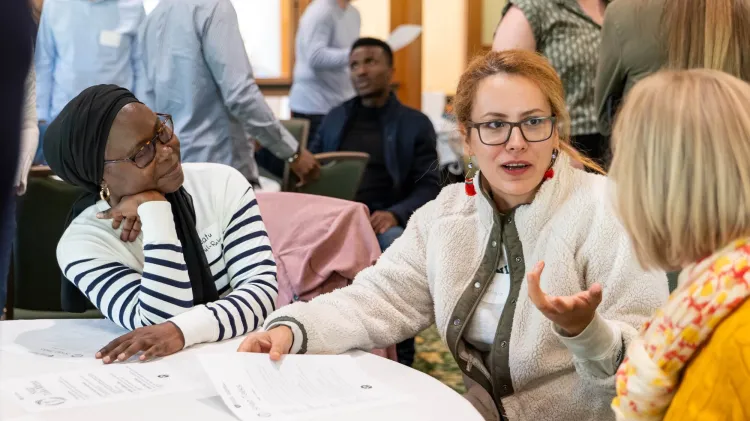
Snap Talks is poised to become a new annual tradition for the FSRI, one that celebrates the breadth of research, the power of science communications, and the joy of coming together over good food and shared purpose.
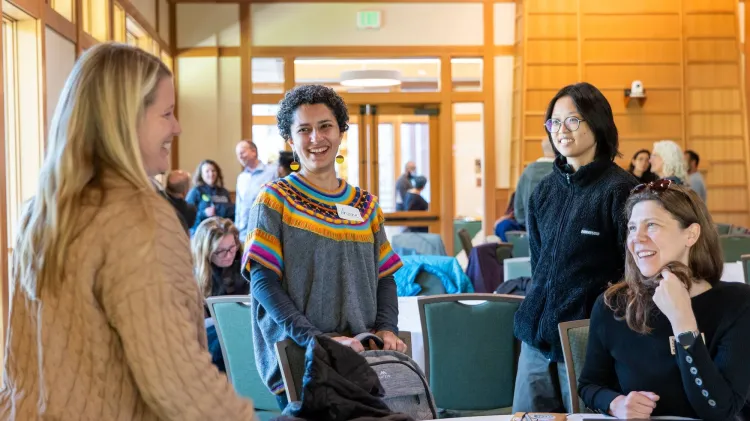
Amongst the many presentations, a few standouts won awards.
Best Visual Design: Chris Skinner: Mouse Mixology: How Do Different Sweeteners and Alcohol Impact Health?
Best Delivery: Tadeu da Silva: CalfSim Tool: Understanding and Optimizing Calf Growth and Welfare
Best Use of Time: Bailey Kretzler: Microbiome Complementarity in the Three Sisters
Most Fun Research Idea: Alicia Rosato: Evaluating Vermont’s Diet and Physical Activity: A Comparison to National Guidelines
Audience Award: Regina Visconti: RNA-Sequencing of Arabidopsis to Identify Genes Involved in Root Hair Growth
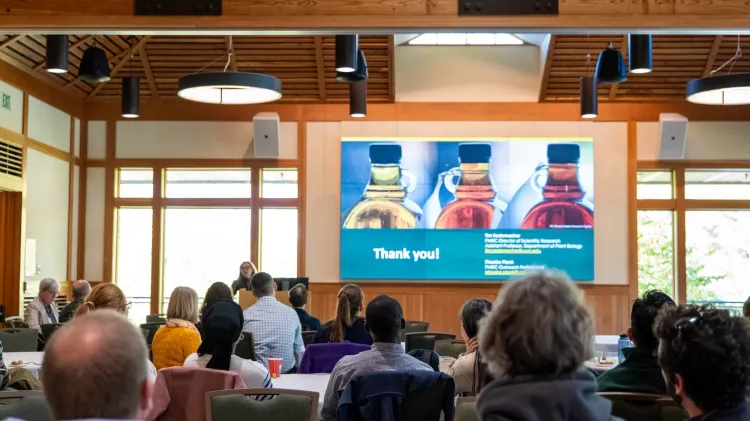
Subscribe to the FSRI newsletter to learn about upcoming event and food systems research news!
About the FSRI:
The Food Systems Research Institute (FSRI) at the University of Vermont (UVM) funds people and planet-centered collaborative research that connects disciplines and communities to answer complex food systems questions.
